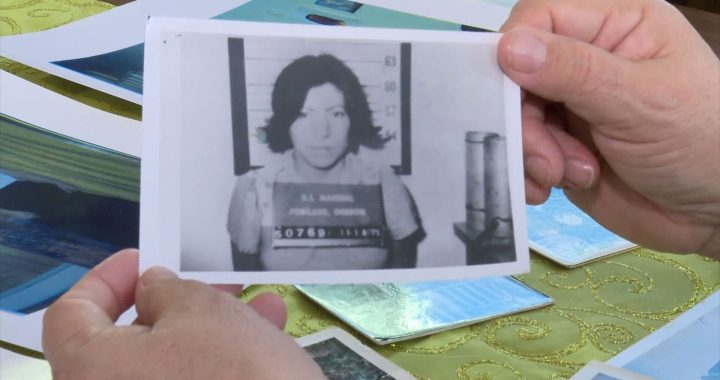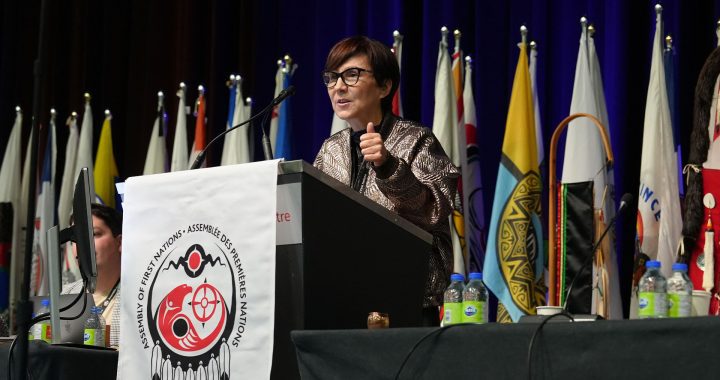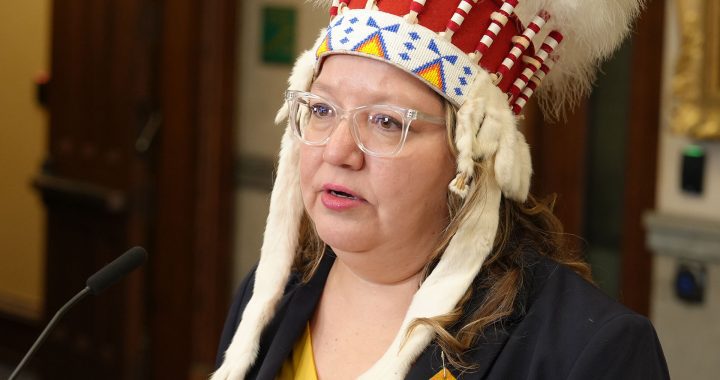(NDP leader Thomas Mulcair (left) and Prime Minister Stephen Harper (right) sparred in QP over TRC report released Tuesday)
APTN National News
Prime Minister Stephen Harper signaled Tuesday his government would not be implementing the UN Declaration on the Rights of Indigenous People despite a call for the move from the Truth and Reconciliation Commission’s (TRC) report released earlier in the day.
Harper also refused to back the conclusion of the commission which determined Indian residential schools were a main tool used by the Canadian government in its policy of cultural genocide against Indigenous peoples.
The TRC released a summary of its final report in a ceremony that included a speech from Chair Murray Sinclair who called on Ottawa to implement the UN declaration as a way to begin reconciliation. Sinclair also said Harper’s 2008 apology for residential school rings hollow today because the federal government has done little to work toward reconciliation.
Check out APTN’s coverage of TRC event
NDP leader Thomas Mulcair opened question period in the House of Commons Tuesday wielding the findings of the TRC, asking Harper if his government would implement the UN declaration.
“Is the prime minister willing to vote to implement the UN Declaration on the Rights of Indigenous Peoples?” said Mulcair, referring to the private member’s bill from Cree NDP MP Romeo Saganash calling for the same. The bill was voted down by Conservative MPs.
Harper called the declaration “aspirational” which wasn’t necessary because Aboriginal rights were recognized by the Canadian Constitution.
“I would point out of course that Canada is one of the very few countries in the world where aboriginal treaty rights are fully recognized in our Constitution. That is one of the reasons why the government accepted the UN declaration as an aspirational document,” said Harper. “We have taken specific actions to enhance the rights of aboriginal people, particularly women living on reserves and generally all aboriginal people, under the Canadian Human Rights Act. Sadly, the NDP and the opposition parties voted against it. I hope they will reconsider some of those positions.”
Mulcair then switched to the TRC’s conclusions about Canada committing cultural genocide through the residential school system.
“Intentions are not enough. An apology is only meaningful if it is accompanied by real action. There were 150,000 children taken from their homes and from their parents in Canada. They were mistreated and horribly abused. As many as 6,000 of them died in Canada. That is 6,000 children dead in Canada,” said Mulcair. “Does the prime minister agree with Justice Sinclair and the Truth and Reconciliation Commission that the residential school program was nothing short of cultural genocide?”
Harper wouldn’t say the word, but instead referred to his 2008 apology as having addressed the matter.
“I addressed these issues some years ago in the House of Commons where I spoke about the devastation caused by a policy of Indian residential schools. This was a policy of forced assimilation that not only destroyed the lives of individuals, but of entire families and societies and it has had long-lasting implications on entire communities in this country,” said Harper. “That is why we have moved forward with the apology and why this government has taken multiple actions over the years to improve the lives of Aboriginal Canadians. We continue to do so. These are concrete steps that are taken. The NDP has voted against every single one of them. I would encourage the New Democrats to start to do something positive on this.”
Mulcair responded saying “a good concrete action would be to recognize that the Truth and Reconciliation Commission is right, that this was an attempt at cultural genocide.”
Liberal leader Justin Trudeau also opened with the issue when his turn came during question period.
“The commission issued 94 recommendations to advance the process to close the quality of life gaps that exist, to revitalize indigenous languages and cultures, and to restore the original respectful relationship with first nations, Métis nation and Inuit peoples,” said Trudeau. “The Liberal Party, today, accepts and commits to implement these recommendations. Will the Prime Minister stand in this place and do the same?”
In his response, Harper seized Trudeau’s preamble to the question referring to the “original respectful relationship.” The prime minister said he doubted it ever existed.
“I am not sure there ever was an original relationship that, quite frankly, was as satisfactory as the honourable leader of the Liberal party would like to say,” said Harper. “The commission has spent a long time on this report, a commission established by this government. It has issued a large number of recommendations. We are still awaiting the full report. The government will examine all of these and, obviously, read them before deciding what the appropriate steps are.”
Harper may have been a little generous in saying his government established the commission. The commission was created as a result of the multi-billion settlement agreement between Ottawa, the churches and survivors.
Harper delivered the apology after the settlement agreement was finalized.
Sinclair is expected to meet with Harper sometime Tuesday.
@APTNNews











Quit being an apologist for these fascist idiots in the CPC. LISTEN to what the TRC has said. It didn’t make these 94 recommendations mindlessly.